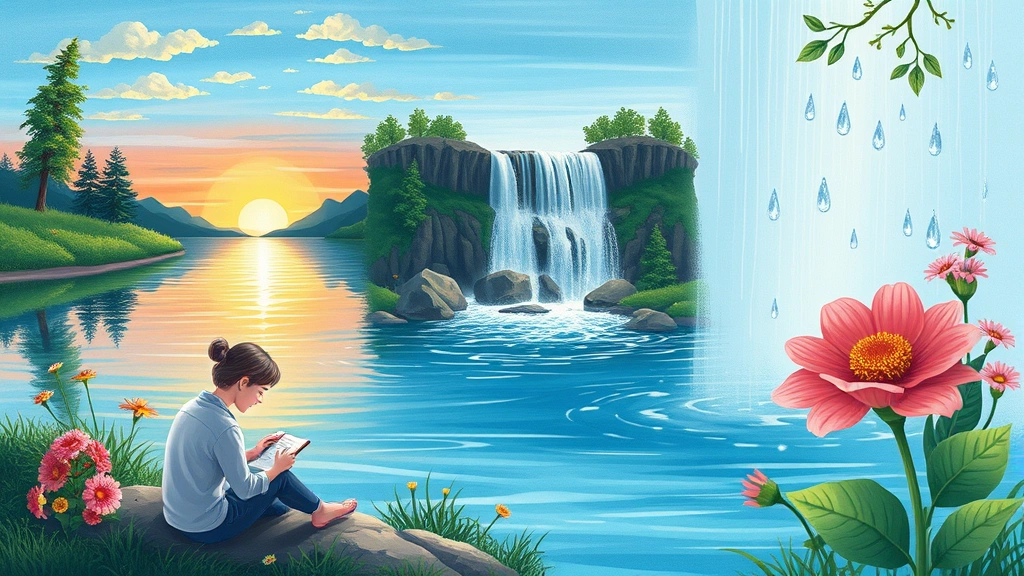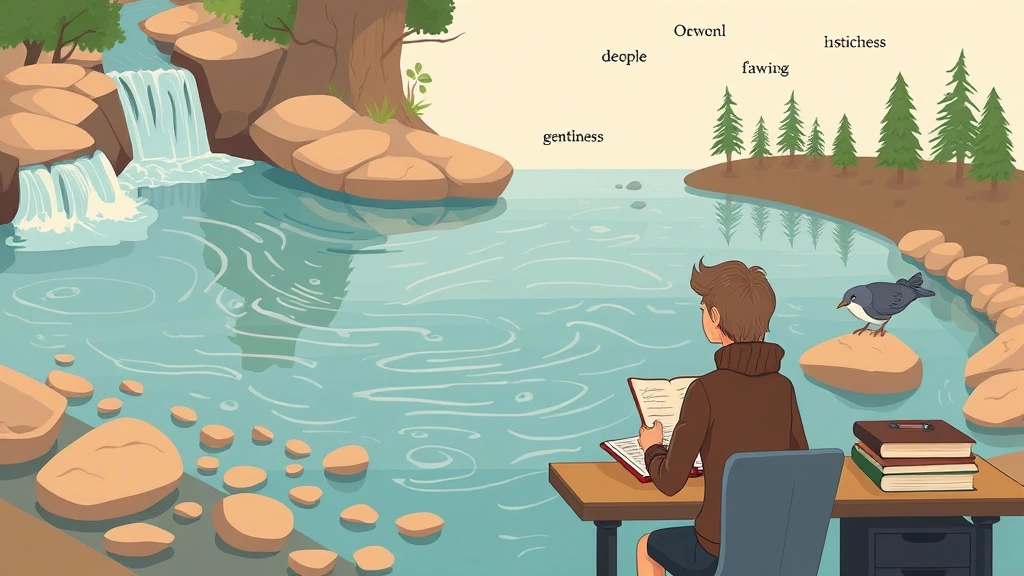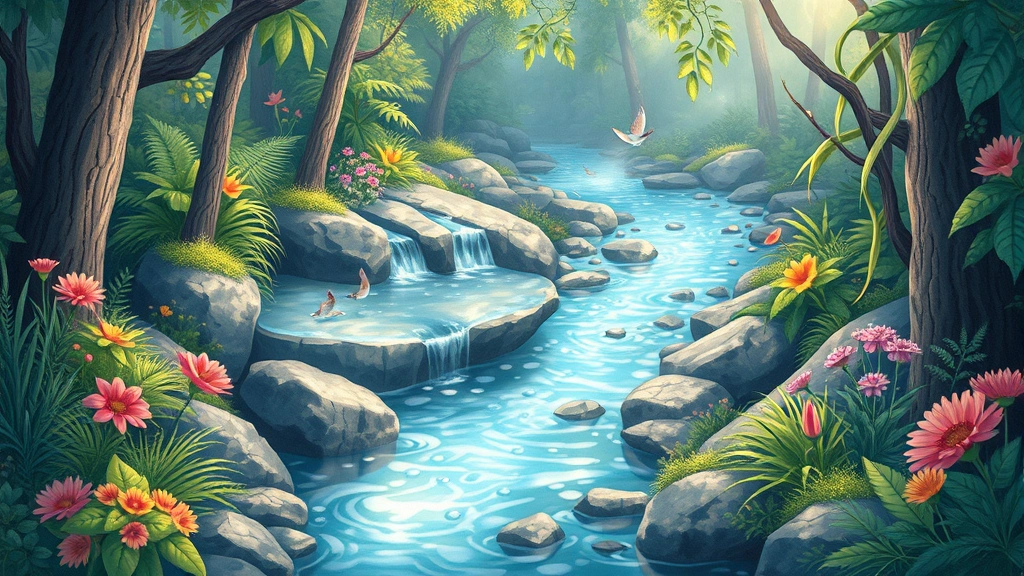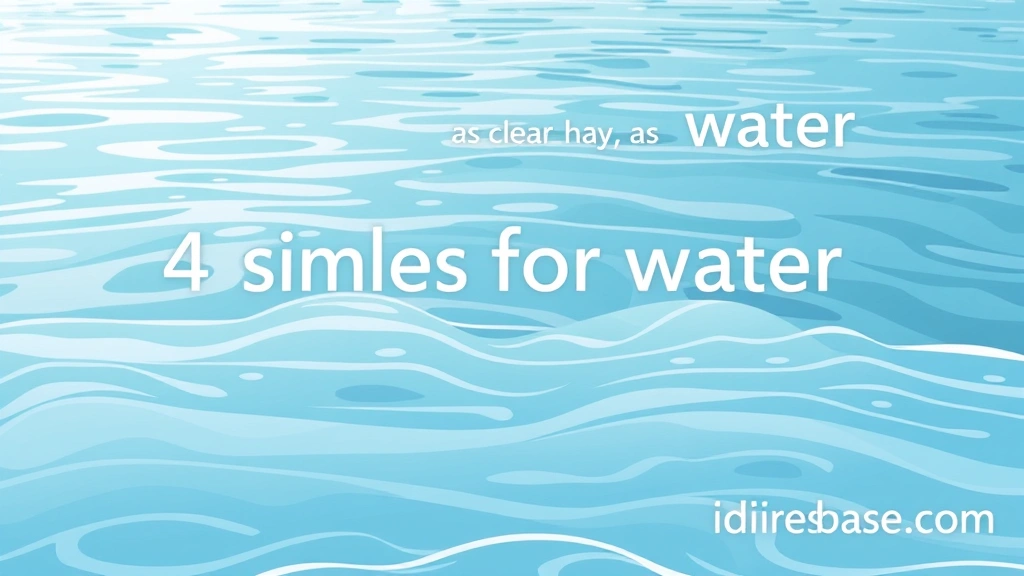Have you ever stopped to think about how incredible water is? It's everywhere, it's essential, and it takes on so many forms! From a gentle ripple to a raging torrent, water is a master of disguise and a source of endless inspiration for writers, poets, and everyday communicators like you and me.
Water’s versatility makes it a fantastic subject for similes. Similes, as you might remember, are those clever comparisons that use "like" or "as" to show how two different things are similar. They help us paint vivid pictures with words, making our descriptions much more engaging and memorable. Ready to dive into a refreshing collection of water similes? Let's explore 40 of them that will make your writing flow like a dream!
Why Similes for Water?
You might be wondering, "Why focus on water similes?" Well, water is a universal element. Everyone understands its properties – its clarity, its movement, its power, its gentleness. This makes it a powerful tool for analogies. When you compare something to water, you're tapping into a shared human experience, instantly making your message more relatable and impactful. Whether you're writing a novel, a poem, a marketing ad, or just trying to describe something better, these similes can really elevate your prose.
40 Similes for Water
Let's get to the good stuff! Here are 40 evocative similes for water, broken down into categories to inspire your next piece of writing.
Similes for Clarity and Purity
When you want to describe something as clear and pure, water is your go-to comparison.
- As clear as crystal water: Perfect for describing transparency.
- Like spring water, pure and untouched: Evokes a sense of pristine naturalness.
- As sparkling as fresh dew: Captures a delicate, shimmering quality.
- Like distilled water, free of impurities: Highlights absolute purity.
- As clean as mountain stream water: Suggests refreshing clarity from a natural source.
- Like a freshly washed window, clear as water: For visual transparency.
- As pure as the first snowfall, melting into water: Combines purity with transformation.
- Like a polished diamond, clear as water: For brilliance and transparency.
- As transparent as a jellyfish in water: For something almost invisible.
- Like a perfect mirror, smooth as still water: For flawless reflection.
Similes for Movement and Flow

Water is all about movement. These similes capture its dynamic nature.
- Flowing like a river: For continuous, steady movement.
- As swift as a current: For rapid, powerful motion.
- Like spilled milk, spreading everywhere: For uncontrolled or expansive flow.
- As gentle as a babbling brook: For soft, soothing movement.
- Like a waterfall, cascading downwards: For dramatic, forceful descent.
- As restless as the ocean waves: For constant, unending motion.
- Like a silent tide, creeping in: For slow, subtle progression.
- As fluid as mercury: For smooth, adaptable movement.
- Like a burst pipe, gushing out: For sudden, forceful release.
- As shifty as a quicksand pool: For unpredictable, sinking movement.
Similes for Sound and Silence
Water can be loud or incredibly quiet. These similes play on its auditory qualities.
- As silent as still water: For profound quietness.
- Like a roaring rapids, loud and boisterous: For overwhelming noise.
- As soothing as trickling water: For gentle, calming sounds.
- Like dripping water, a constant annoyance: For repetitive, irritating sounds.
- As whispering as a gentle rain: For soft, subtle sounds.
Similes for Power and Force
When you need to describe immense strength or an unstoppable force, think of water.
- As powerful as a tsunami: For overwhelming, destructive force.
- Like a raging flood, unstoppable: For relentless, overwhelming power.
- As relentless as erosion by water: For slow, persistent, transformative power.
- Like a powerful geyser, erupting upwards: For sudden, explosive force.
- As strong as a whirlpool, drawing you in: For irresistible, magnetic power.

Similes for Calmness and Serenity
Water also represents peace and tranquility.
- As calm as a placid lake: For profound peacefulness.
- Like a still pond, reflecting the sky: For perfect tranquility and reflection.
- As peaceful as a dewdrop: For delicate, quiet serenity.
- Like a gentle mist, soft and enveloping: For a calming, pervasive presence.
- As soothing as a warm bath: For comfort and relaxation.
Similes for Mystery and Depth
Water holds secrets and can be unfathomable.
- As deep as the ocean floor: For profound depth or complexity.
- Like a dark abyss, murky and unknown: For mystery and hidden dangers.
- As elusive as a phantom in water: For something hard to grasp or define.
- Like a hidden spring, waiting to be discovered: For untapped potential or secrets.
- As mysterious as the deep sea: For the unknown and unexplored.
Key Takeaways
- Similes make your writing shine: They add color, imagery, and emotional depth.
- Water is a versatile subject for similes: Its many forms and properties offer endless comparison opportunities.
- Think about the specific quality you want to highlight: Is it clarity, movement, sound, power, or calm?
- Practice makes perfect: The more you use similes, the more naturally they'll come to you.

Frequently Asked Questions
What is a simile?
A simile is a figure of speech that directly compares two different things using the words "like" or "as" to highlight a similarity. For example, "The cloud was as fluffy as cotton candy."
How do similes differ from metaphors?
While both similes and metaphors compare two things, similes use "like" or "as," making the comparison explicit. Metaphors, on the other hand, state that one thing is another, implying the comparison directly without "like" or "as." For example, a metaphor would be "The cloud was cotton candy."
Why are similes important in writing?
Similes help writers create vivid imagery, make abstract concepts more concrete, add emotional resonance, and engage the reader's imagination. They make descriptions more interesting and memorable.
Can I use these similes in any type of writing?
Absolutely! These similes are versatile and can be used in creative writing (novels, poetry), descriptive writing, academic essays (to illustrate points), marketing copy, and even everyday conversation to make your language more expressive.
How can I create my own similes?
To create your own similes, first identify the object or idea you want to describe. Then, think about its most prominent characteristics or effects. Finally, brainstorm other things that share those characteristics, and connect them using "like" or "as." For example, if you want to describe a shy person, you might think of their quietness and compare them to "as silent as a mouse."
| Characteristic of Water | Example Simile | What it emphasizes |
|---|---|---|
| Clarity | As clear as crystal water | Transparency, purity |
| Movement | Flowing like a river | Continuous motion |
| Power | As powerful as a tsunami | Overwhelming force |
| Calmness | As calm as a placid lake | Serenity, stillness |
| Mystery | As deep as the ocean floor | Profoundness, unknown |
We hope this deep dive into water similes has sparked your imagination and given you a fresh perspective on this amazing element. Now, go forth and make your writing flow with the beauty and versatility of water! What's your favorite water simile? Share it with us in the comments below!






